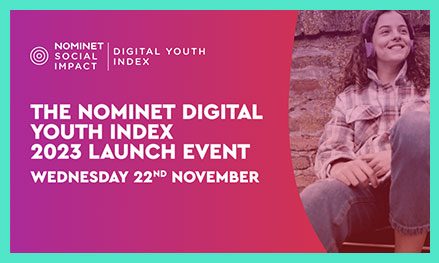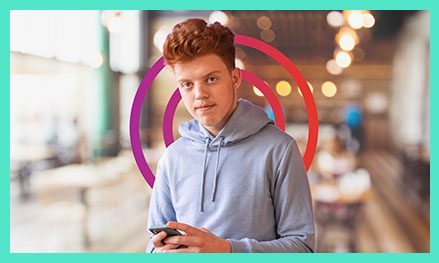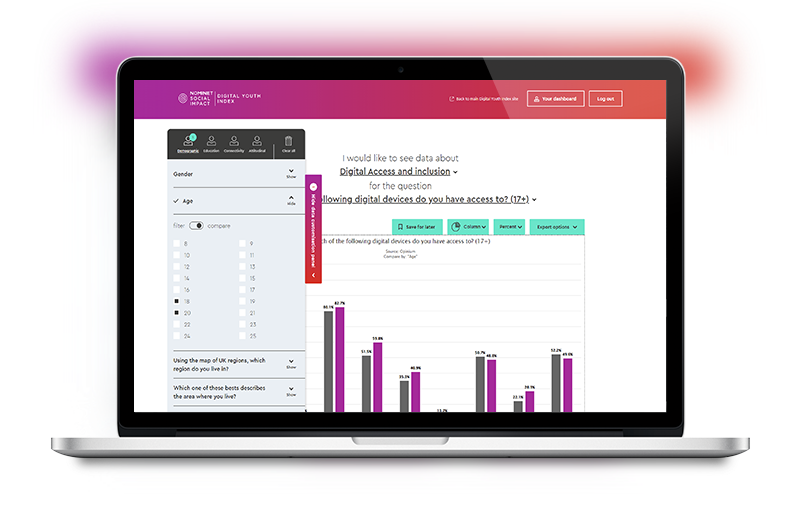The report is a stark reminder that our digital landscape is uneven, complicated, enriching, risky, essential. Not everyone has an equal chance to benefit. Indeed, the case for a national benchmark of what households need for a ‘minimum digital standard of living’ is growing. Young people’s views on what is a ‘minimum’ needs to be part of this – and will be, as this blog by Katherine Hill and Chloe Blackwell explains.
The Digital Youth Index offers a rounded picture of young people’s digital lives. And a reality check.
- One quarter of children and young people participating in the 2022 survey rely on out-of-home internet connection to stay connected.
- WiFi at home is the most frequently used type of internet connection for most young people (72%) but this falls significantly for young people living with a guardian or carer (48%).
- One sixth (16%) of young people said mobile data is their primary means of connecting to the internet.
Young adults (16+) said mobile data was essential not only for socials and fun, but for everyday essentials which are characteristic of transition to adulthood and independence. Maps and travel planning. Online banking. Email. These are among the online services captured in Kat Dixon’s Periodic Table of Internet Elements. As Kat, a Data Poverty Lab Fellow, puts it: ‘good internet access is elemental to living life in the UK’.
That’s why the National Databank is such a big deal.
The National Databank distributes free mobile data to registered local partners, so they in turn can support people and families who need it. Any group, organisation or support provider which directly reaches people who could benefit can apply to join (find out more here). Delivered by Good Things Foundation, it is a pioneering collaboration with Virgin Media O2, Vodafone, Three and Nominet. There are over 600 local databank partners – and the number is growing.
There’s other support too – such as discounted ‘social tariffs’ for fixed line broadband. But uptake and awareness is low. Only 3% of eligible customers are on a social tariff according to Ofcom’s latest data.
Today is also Day 1 of Get Online Week. Today’s theme is helping others. There’s more we can all do to help people stay connected. Young and old. So if you want to #TryOneThing today, check out our user-friendly guide – ‘Supporting people with data connectivity (mobile and broadband)’ – and learn more about support that’s out there.

Dr Emma Stone, Director of Evidence and Engagement, Good Things Foundation
Emma leads research, comms and engagement at the UK’s leading digital inclusion charity, delivering programmes and advocating to fix the digital divide alongside community partners.
Share this article








